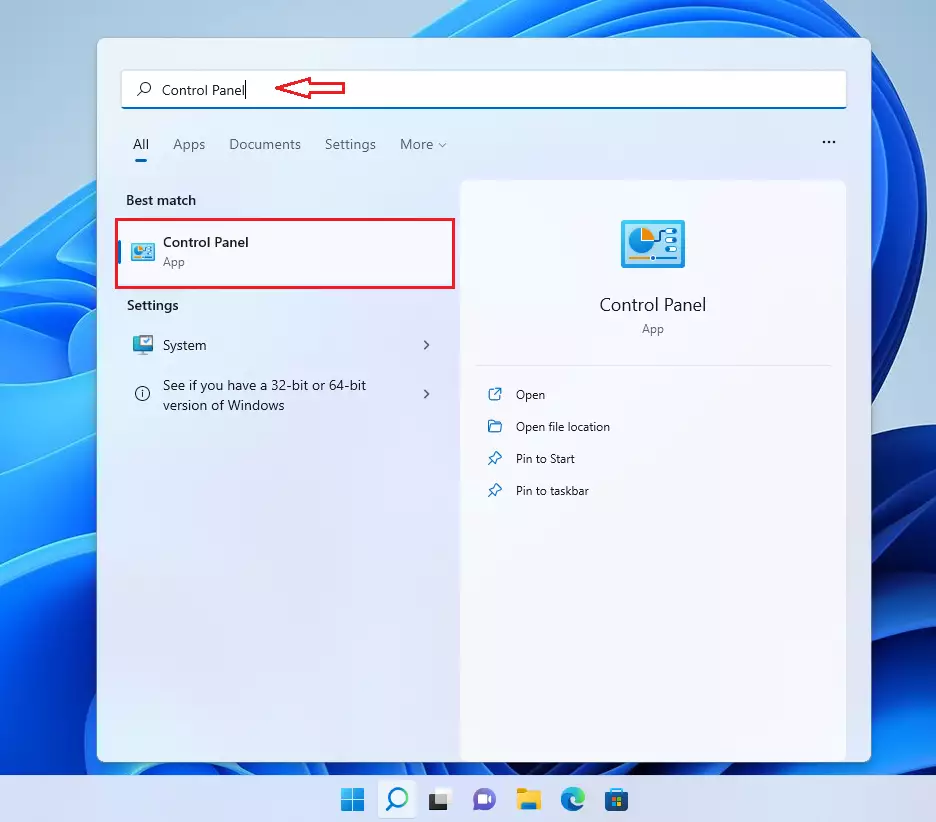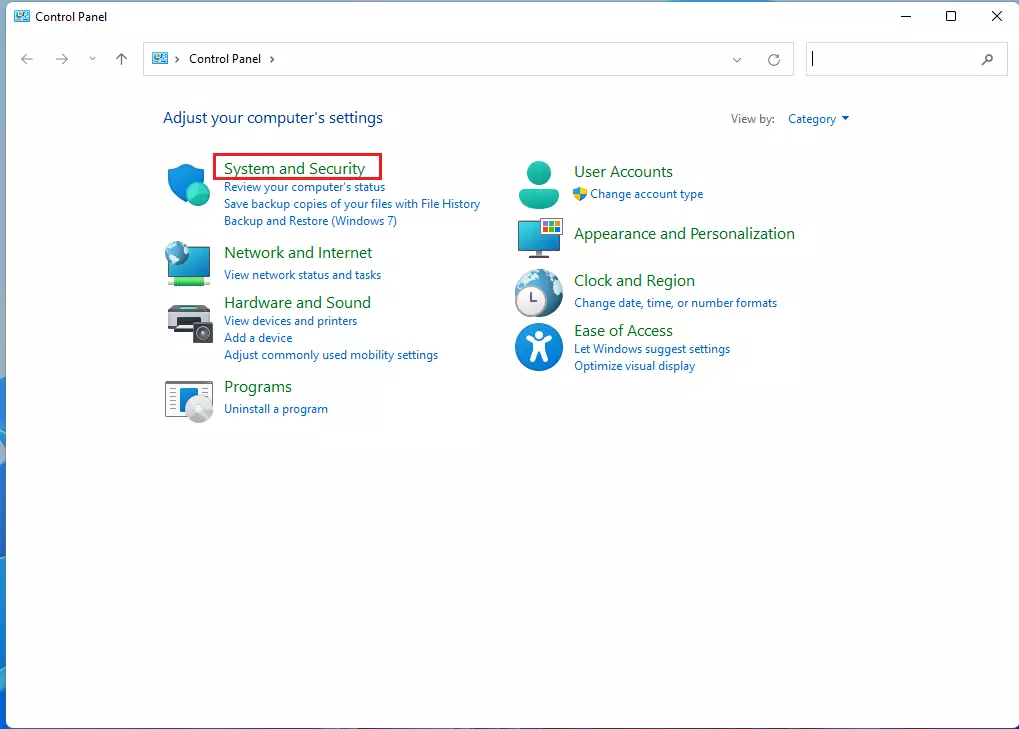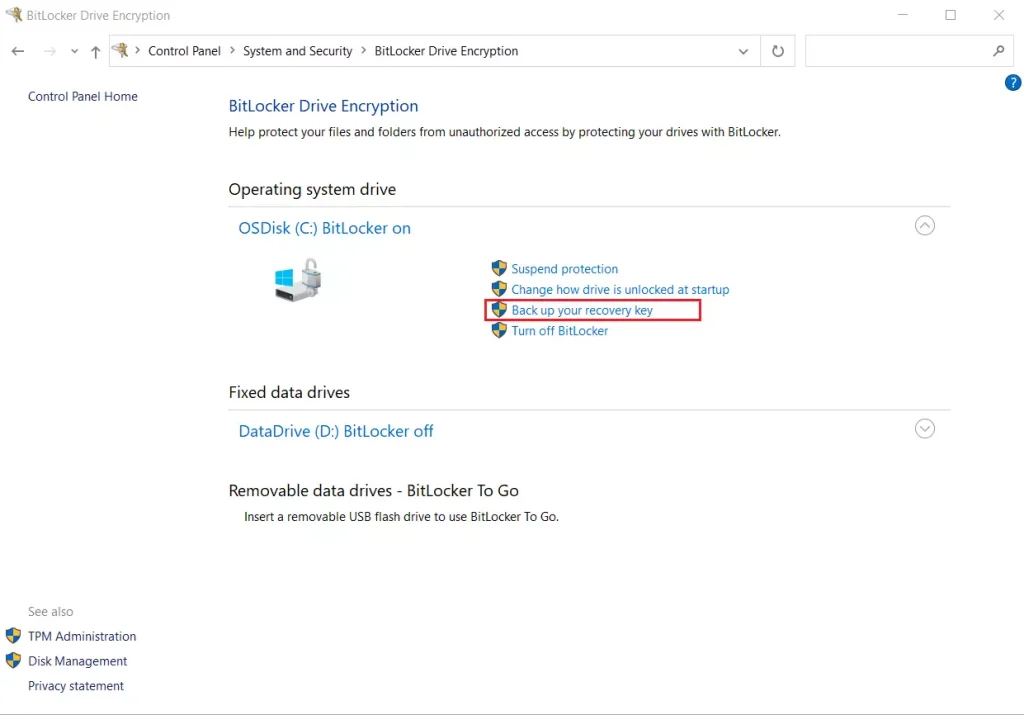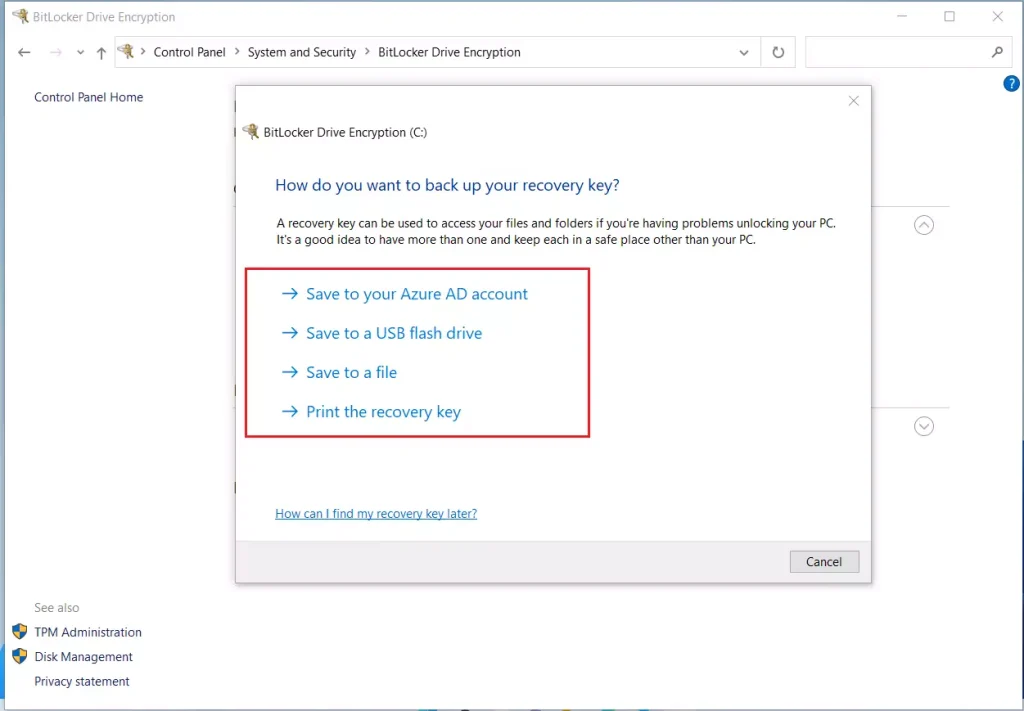This article explains how to back up the BitLocker recovery key when using Windows 11.
When you turn on BitLocker, it’s also essential to back up its recovery key for all drives with BitLocker enabled.
You must save or print out the BitLocker recovery key when setting up your machine for the first time. That’s how important it is to have a recovery key. If you can not find or locate the backup key while accessing your computer, use the steps below to create a new backup copy.
BitLocker helps protect your computer data so that only authorized users can access it. Access will be denied if someone tries to access your BitLocker-enabled computer without authentication.
Windows will require a BitLocker recovery key when it detects a possible unauthorized attempt to access the data. This extra step is a security measure to protect your data and computer.
If you can not locate the BitLocker key for your machine during the recovery process, you may not be able to access your data and need to reset or clean-install Windows 11.
How to back up BitLocker recovery key in Windows 11
As mentioned above, if you can not locate the BitLocker key for your machine during the recovery process, you may not be able to access your data and need to reset or clean-install Windows 11.
It’s also good to back up and secure your BitLocker recovery key. Below is how to create a backup of your BitLocker key.
While BitLocker is enabled on your machine, open the Control Panel.
In the search box on the taskbar, type Control Panel and select Control Panel in the results list.

In the Control Panel, click on System and Security link, then open the BitLocker Drive Encryption icon.

In the BitLocker drive setting pane, click on the link “Back up your recovery key” for all the drives encrypted with BitLocker.

You’re given multiple choices. For example, you can save your BitLocker key to your Azure AD account, save it to a USB flash drive, to a file on a network or another device or print out the recovery key from a printer.

Whichever method you select to back up your key, follow the prompts and save the key. If your computer prompts you for the key, provide it to restore the machine.
That should do it!
Conclusion:
- Backing up your BitLocker recovery key is crucial to ensure access to your data in case of unauthorized access or other emergencies.
- Windows 11 provides multiple options to back up the key, including saving it to Azure AD, a USB flash drive, a network file, another device, or printing it out. Choose the method that suits your needs best.
- Following the prompts to save the key ensures that you can restore your machine if prompted for the key during the recovery process.
Remember, keeping your BitLocker recovery key safe is essential for maintaining access to your encrypted data and protecting your computer.

Leave a Reply Cancel reply